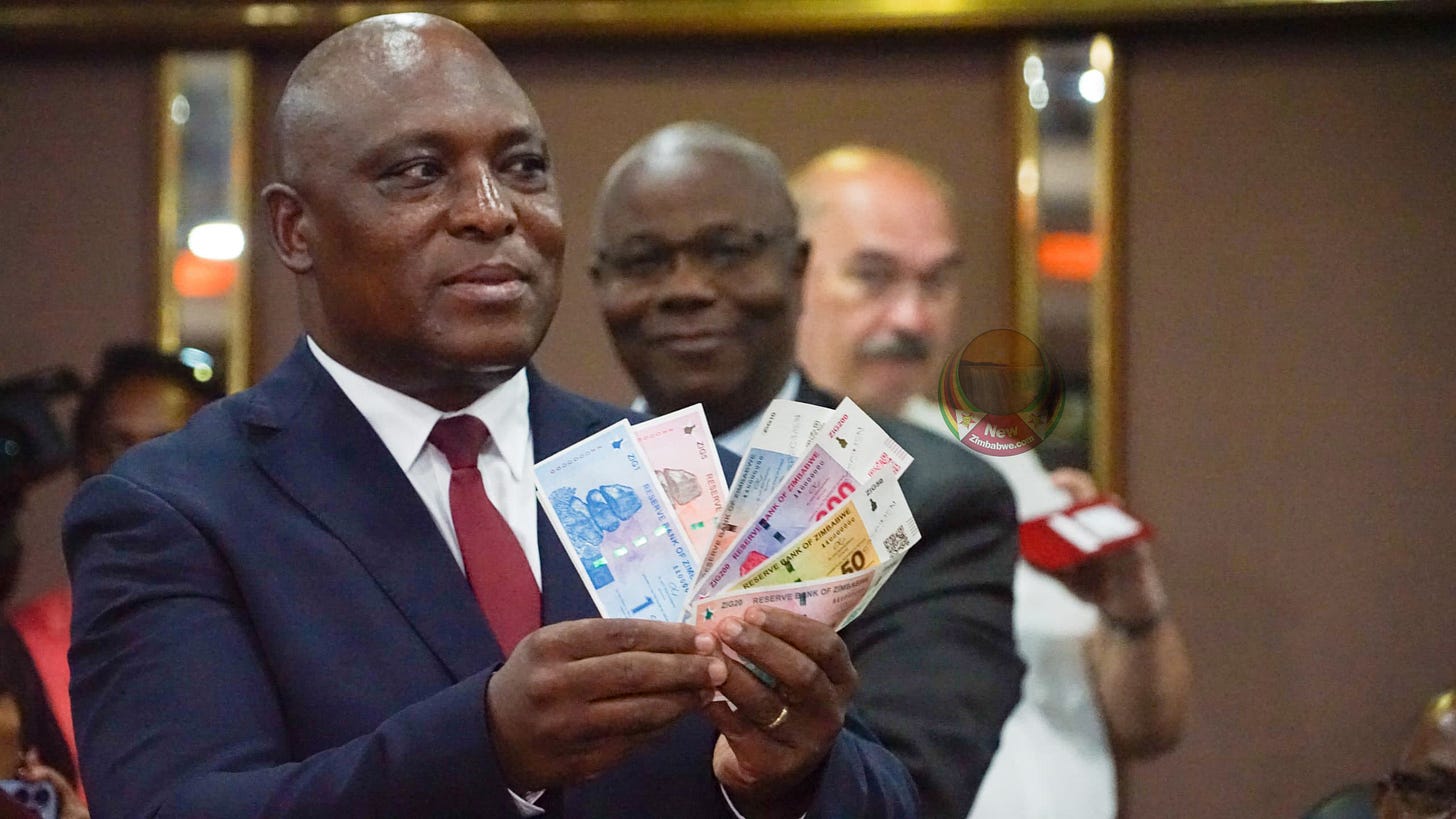Stories to Watch This Week
🇿🇼 The ZiG Currency, 🇿🇦 MultiChoice & CANAL+
🇿🇼 The ZiG
Zimbabwe has officially launched its new currency, the ZiG (derived from Zimbabwe Gold), to combat hyperinflation and currency instability.
While many people have never experienced a currency change in their lifetime, this is the fifth or sixth time Zimbabwe has changed currencies, depending on how you count.
What is the ZiG? It is a currency backed by assets, primarily gold reserves in this case that will replace the most recent iteration of the Zimbabwean Dollar.
Gold-backed currencies are not new. In fact, prior to 1971, the USD was backed by gold, and theoretically, at least, you could exchange your USD for an amount of gold.
Ironically, the US did away with its gold-backed currency because there were now many more dollars in circulation than actual gold—some reports suggest as many as four times the amount.
So, in a sense, the US was printing more money than it should have! Sounds familiar?
This sets up an interesting comparison.
Imagine you have two friends, Usman and Ziggy, who want to borrow $1,000 from you. Usman says, “Hey, lend me $1,000, and I promise I will pay you back”.
Ziggy, on the other hand, says, “Hey, lend me $1,000, and I guarantee that I will pay you back. To prove it, here is a bunch of jewellery I own worth $2,000.”
Who should you be more willing to lend the money to? Theoretically, it should be Ziggy. After all, Usman is only making you a promise, but Ziggy has backed up his loan with real assets.
You would only prefer Usman over Ziggy if you have serious trust issues with Ziggy. Perhaps you think his jewellery is fake, stolen, or something else.
In the analogy above, most Zimbabweans would shun Ziggy and prefer to deal with Usman (who represents the USD), even though the Usman is not backed by any assets. This is simultaneously irrational and rational. Irrational in that, in principle, the arrangement backed by assets seems like a better option, but rational in that in the past, “Ziggy” has let you down so many times.
This also highlights that the most important ingredient of a stable currency isn’t the mineral reserves or assets backing it; it’s the confidence people have in it.
The good news is that the new Reserve Bank Governor, Dr John Mushayavanhu, seems to understand the importance of building confidence. He went to great lengths to reassure the public that he would not resort to printing money as in the past.
Below is what he said based on a report from Newsday.
“I don’t believe in quasi-fiscal activities. It’s not going to happen under my watch. My mandate, as spelt out in the RBZ Act, is very clear. I have no intention, whatsoever, to do other people’s jobs. I’ll do my job”
The question is now whether the Governor can live up to his promise. I hope he can, but it is not a job for the faint-hearted!
Who knows what will happen? Many people automatically say we have seen this before, so what will change?
This is a fair and understandable comment. But as the saying goes, history is the best predictor of the future until it’s not.
🇿🇦 MultiChoice Group
Last week, we discussed the reports that Patrice Motsepe could join CANAL+ in bidding to buy MultiChoice. That news didn’t have much impact on the share price, indicating that people didn’t believe the reports or that they didn’t think it would make a difference.
This week, however, there has been some news that has made the stock price jump.
An article from News24 states.
French media giant Canal+ announced on Monday it has now made a mandatory offer for a takeover of MultiChoice, offering R125 per share. The new offer price is almost 67% higher than the MultiChoice share price just before its first offer in February.
MultiChoice, Africa's biggest pay TV operator, meanwhile has roped in Standard Bank as an independent expert to give an opinion on the offer, also agreeing to cooperate in ensuring its implementation.
The increase in the share price indicates that this deal will go through, so prepare for a CANAL+ future in paid TV in Africa.
Even if the deal doesn’t go through, which I think could only be because of regulatory issues, the price has been set for MultiChoice, and I think the most likely outcome in the next few years is the company being acquired.
What’s in Store This Week
Tuesday: Stories To Watch This Week✅
Midweek: Part 2 on the Business of Telecoms and Econet Wireless. If you missed Part 1 be sure to check it out here. ⌛
Weekend: Visual of the Week⌛





Very informative pieces indeed. Your presentation skills are exceptional.
In the article above it is reported as quoted from News24 that #MultiChoice, Africa's biggest pay TV operator, meanwhile has roped in Standard Bank as an independent expert to give an opinion on the offer, also agreeing to cooperate in ensuring its implementation.#
Just to confirm if banks do ordinarily offer the mentioned service of being indipendent experts on deals of this magnitude just like KPMG, PwC etc besides offering the traditional banking services?